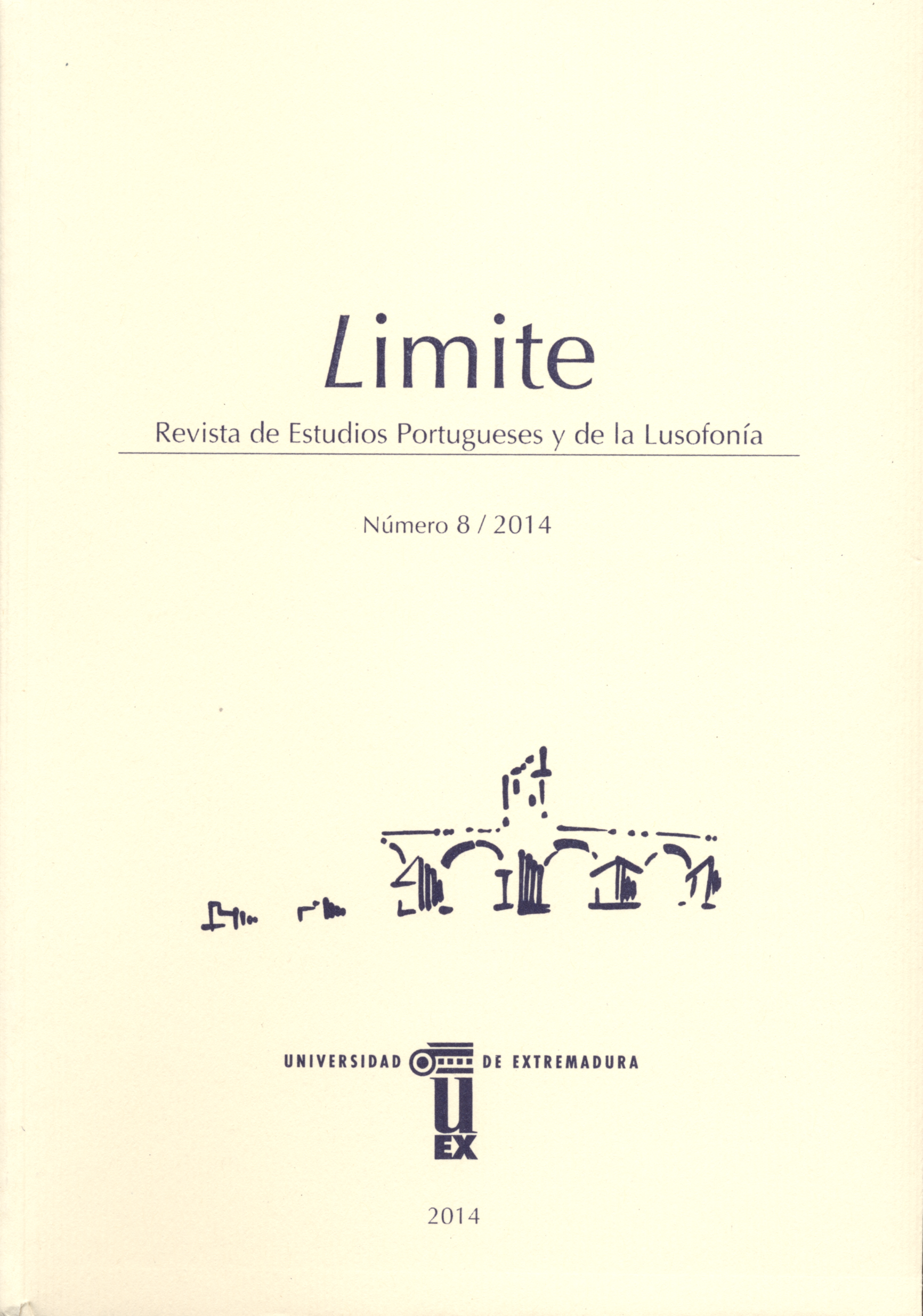Looking at Mozambique: Guilherme de Melo's A sombra dos dias
Keywords:
imagology, Mozambique, portuguese colonialism, literary sistemsAbstract
Literary texts regarding colonial scenarios and decolonisation
processes are of special interest for an imagological approach. The
present article is concerned with the first novel published in 1981 by
the portuguese author (of Mozambicanian descent) Guilherme de
Melo after his final move to Portugal when Mozambique gained
independence in 1975. It focusses on the construction of
representations of the self and the other in the cultural, historical and
socio-political context of the colonial regime in its last phase, the
liberation movements and the national-building in the former
portuguese Africa, with ample attention paid to the perception of
different types of internal alterities, based on categories of difference
which go beyond the usual bipolar confrontations.
References
Assmann (1999): Aleida Assmann, Erinnerungsräume. Formen und Wandlungen des kulturellen Gedächtnisses, München, Beck.
Bleicher (1980): Thomas Bleicher, "Elemente einer komparatistischen Imagologie". Komparatistische Hefte 2, pp. 12-24.
Brandenberger (2012): Tobias Brandenberger, "Semos tercos, semos rudos. Lectura imagológica de dos zarzuelas chicas" em Yvette Bürki, Manuela Cimeli, Rosa Sánchez (eds.), Lengua, Llengua, Llingua, Lingua, Langue. Encuentros filológicos (ibero)románicos. Estudios en homenaje a la profesora Beatrice Schmid, München, Peniope, pp. 74-91.
Brandenberger (2014): Tobias Brandenberger, "Lucha de pucheros. Imagología literaria y rivalidades gastronómicas" em Rolf Eberenz (ed.), Discursos hispánicos sobre alimentación y culinaria. Aproximaciones literarias y lingüísticas, Madrid, Visor, pp. 85-100.
Brandenberger (no prelo): Tobias Brandenberger, "Raízes do ódio de Guilherme de Melo – uma «nova África»?" em Enrique Rodrigues-Moura, Doris Wieser (eds.), Identidades em movimento. A construção do nacional na África lusófona, Frankfurt, TFM (no prelo).
Chabal (1994): Patrick Chabal, Vozes Moçambicanas – Literatura e Nacionalidade, Lisboa: Vega.
Dukić (2012): Davor Dukić (ed.), Imagology today: Achievements, Challenges, Perspectives, Bonn, Bouvier.
Fernández García / Leal (2012): María Jesús Fernández García, Maria Luísa Leal (coords.), Imagologías Ibéricas: construyendo la imagen del otro peninsular, Mérida, Gobierno de Extremadura.
Fischer (1981): Manfred S. Fischer, Nationale images als Gegenstand vergleichender Literaturgeschichte. Untersuchungen zur Entstehung der komparatistischen Imagologie, Bonn, Bouvier.
Fischer (1987): Manfred S. Fischer. "Literarische Imagologie am Scheideweg des ‘Bildes vom anderen Land’ in der LiteraturKomparatistik" em Günter Bleicher (ed.), Erstarrtes Denken. Studien zu Klischee, Stereotyp und Vorurteil in englischsprachiger Literatur, Tübingen, Gunter Narr, pp. 55-71.
Koselleck (2003): Reinhart Koselleck, "Geschichte, Geschichten und formale Zeitstrukturen" em Reinhart Koselleck, Vergangene Zukunft. Zur Semantik geschichtlicher Zeiten, Frankfurt am Main, Suhrkamp, 52003, pp. 130-143.
Laranjeira (1992): Pires Laranjeira, "Questões da formação das literaturas africanas" em Pires Laranjeira, De letra em riste: identidade, autonomia e outras qustões na literatura de Angola, Cabo Verde, Moçambique e São Tomé e Príncipe, Porto, Afrontamento, pp. 17-32.
Laranjeira (1995): Pires Laranjeira, Literaturas africanas de expressão portuguesa, Lisboa, Universidade Aberta.
Leerssen (2006): Joep Leerssen, "The downward pull of cultural essentialism" em Wintle, Michael J. (ed.): Image into identity. Constructing and assigning identity in a culture of modernity, Amsterdam, New York, Rodopi, pp. 31-50.
Leerssen (2007): Joep Leerssen, "Imagology: history and method", "Identity" em Manfred Beller, Manfred, Joep Leerssen (eds.), Imagology. the cultural construction and literary representation of national characters. A critical survey, Amsterdam, New York, Rodopi, pp. 17-32, 335-341.
Leite (1998): Ana Mafalda Leite, Oralidades e escritas nas literaturas africanas, Lisboa, Colibri.
McGovern (2006): Timothy McGovern, "Narrating Homophobia and the Closet in Portugal: Guilherme de Melo and the Emergence of Queer Canons", Luso-Brazilian Review , 43/1, pp. 94-110.
Mendonça (1988): Fátima Mendonça, Literatura moçambicana. A história e as escritas, Maputo, Universidade Eduardo Mondlane.
Meneses (2010): Maria Paula G. Meneses, "O «indígena» africano e o colono «europeu»: a construção da diferença por processos legais", e-cadernos CES, pp. 68-93.
Melo (1985): Guilherme de Melo, A sombra dos dias, Lisboa, Notícias, (1.1981).
Pageaux (1988): Daniel-Henri Pageaux, "Image/imaginaire" em Hugo Dyserinck, Karl Ulrich Syndram (eds.), Europa und das nationale Selbstverständnis. Imagologische Probleme in Literatur, Kunst und Kultur des 19. und 20. Jahrhunderts, Bonn, Bouvier, pp. 367-379.
Pageaux (1989): Daniel-Henri Pageaux, "De l'imagerie culturelle à l'imaginaire" em Pierre Brunel, Yves Chevrel (eds.), Précis de littérature comparée, Paris, PUF, pp. 133-161.
Pageaux (1992): Daniel-Henri Pageaux, "De l'imagologie à la théorie en littérature comparée. Éléments de réflexion" em Joep Leerssen, Karl Ulrich Syndram (eds.), Europa Provincia Mundi. Essays in Comparative Literature and European Studies offered to Hugo Dyserinck on the occasion of his sixty-fifth birthday, Amsterdam, Atlanta, Rodopi, pp. 297-307.
Pageaux (1995): Daniel-Henri Pageaux, "Recherches sur l'imagologie: de l'Histoire culturelle à la Poétique", Revista de Filología Francesa, 8 (1995), pp. 135-160.
Pereira (2009): Paulo Alexandre Pereira, "Cadernos do nefando: a experiência homoerótica na guerra colonial", Forma breve, 7, pp. 159-199.
Ribeiro (2012): Gabriel Mithá Ribeiro, "«É pena seres mulato!» Ensaio sobre relações raciais", Cadernos de Estudos Africanos, 23, pp. 21-51.
Santos Unamuno (2012): Enrique Santos Unamuno, "La identidad como estereotipo: los estudios imagológicos frente a las coartadas de la Literatura" em María Jesús Fernández García, Maria Luísa Leal (coords.), Imagologías Ibéricas: construyendo
la imagen del otro peninsular, Mérida, Gobierno de Extremadura, pp. 33-54.
Siebenmann (1996): Gustav Siebenmann, "La investigación de las imágenes mentales. Aspectos metodológicos", Versants, 29 (1996), pp. 5-29.
Valentim (2010): Jorge Valentim, "Armários devassados: homoerotismo e resistência na ficção de Guilherme de Melo", Terra Roxa e outras terras - Revista de Estudos Literários, 18, pp. 78-88.
Downloads
Published
Issue
Section
License
Los derechos de los artículos publicados en esta revista son los que establece por defecto el Servicio de Publicaciones de la Universidad de Extremadura. Poseen una licencia de Creative Commons CC BY 4.0. Puede consultar la licencia en: Creative Commons
La política de acceso abierto de la Universidad de Extremadura acepta los principios del movimiento de acceso abierto y la declaración de Berlín. Por ese motivo, los autores aceptan que los artículos publicados se recojan en el repositorio DEHESA de esta universidad.
El autor del artículo puede publicarlo libremente en otros medios siempre que refiera esta revista como la depositaria del texto original.



